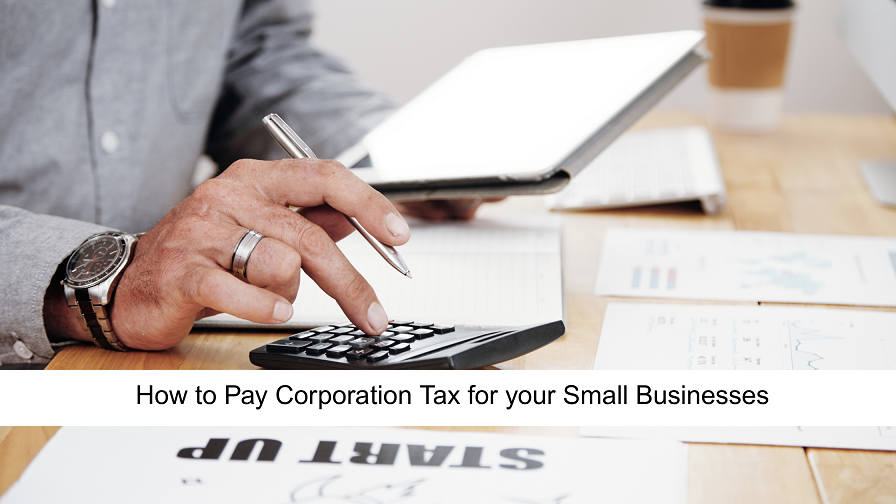
Running a small business means you have to manage your company's finances, including how to pay corporation tax. If your business makes a profit from trading, investments, or selling assets, paying corporation tax is your responsibility. To pay corporation tax, you need to work out your profit, report it to HMRC, and pay the tax on time.
The current rate depends on your level of profit, but most small companies pay either 19% or 25% on taxable profits. Understanding how to pay corporation tax is an important step to keep your business legal.?
Corporation tax is a tax on your company’s profits. If you run a limited company, you must pay corporation tax every year on any profit your business makes from trading, investments, or selling assets like property or equipment. This tax applies whether you are a small business owner, freelancer, or run a start-up.
You must pay your corporation tax within 9 months and one day after your company’s financial year ends. For example, if your business year finishes on 31st March, you need to pay by 1st January the next year. Paying on time is important because if you miss this deadline, HMRC can charge penalties.
To avoid this, know your company’s accounting period and set reminders ahead of time. If you are not sure of the dates, ask your accountant or use bookkeeping software to keep track and make sure you pay on time.
Paying corporation tax is simple if you follow these steps:
1. Calculate Your Profit and Tax Due
To calculate your profit and tax due, start with your company’s net profit from your accounts. Add back any expenses that aren’t allowed for tax, like client entertainment. Subtract allowable expenses such as salaries and rent. Include any gains from selling assets. The amount left is your taxable profit.
Apply the correct corporation tax rate, 19% for profits under £50,000, 25% for profits over £250,000, and a gradual rate in between, to find the tax you need to pay.
2. Submit Your Company Tax Return
To submit your Company Tax Return (CT600), you need to file it online through the HMRC website. The return shows HMRC how much profit your business made and how much corporation tax you owe.
You must include all relevant financial details accurately. Filing your return on time helps avoid penalties and keeps your business compliant with tax rules.
3. Find Your Payment Reference Number
Log in to your HMRC online account to find your unique 17-character Corporation Tax payment reference number. This number is important to make sure your payment is correctly linked to your company.
4. Choose Your Payment Method
When it comes to paying your corporation tax, HMRC offers several convenient options to suit your needs. Here are the main ways you can pay:
These methods provide flexibility and simplicity, helping you manage your tax payments efficiently.
5. Pay Before the Deadline
Make sure you pay your corporation tax on time to avoid any penalties or interest charges from HMRC.
6. Keep Records
Always keep a record of your payment confirmation for your business accounts and future reference.
Here are 3 ways you could lower your corporation tax bill:
Registering to pay corporation tax is a crucial step for any business operating as a limited company. It helps you meet legal tax obligations and ensures you pay corporation tax on time.
Here are the main steps to register:
Paying corporation tax correctly helps you avoid costly mistakes:
For start-ups and new businesses, it’s wise to get guidance from professionals who handle corporation tax payment, payroll, VAT, and bookkeeping day-to-day.
Paying corporation tax is simple for small businesses. Work out your profit, file your return online, and pay your tax on time to avoid problems. Most small companies pay 19% if profits are under £50,000, and 25% for profits over £250,000.
Keep records, register with HMRC, and always check deadlines. Claim all available expenses and reliefs to reduce your tax bill. Doing these steps helps your business stay legal and focused on growth.